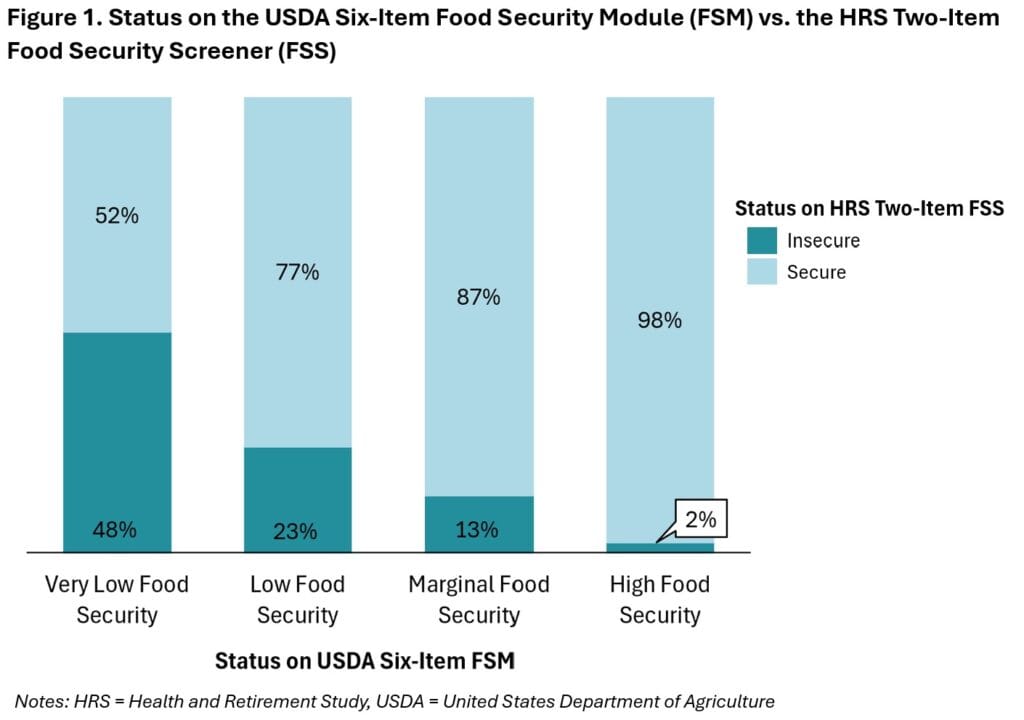Aging
Do We Need Better National Data on Food Insecurity in Older Adults? A Validation Study of the Health and Retirement Study’s 2-Item Food Security Screener Kelley Akiya* Kelley Akiya Suzanna Martinez Anusha Vable
Background: One in 11 older adults experience food insecurity, a modifiable social condition associated with greater mortality and multiple barriers to healthy aging. An important source of national health data among older adults comes from the Health and Retirement Study (HRS), a nationally representative longitudinal study that surveys community-dwelling adults ages 50 and older. The purpose of this study was to examine whether the ongoing biennial 2-item food security screener (FSS), implemented since 1996 prior to the development of the U.S. Department of Agriculture’s (USDA) food security modules, is a valid assessment of food insecurity. Methods: The current study used a subsample of HRS participants (n=7,067) who responded to the FSS (about the past 2 years) in the 2014 biennial survey and the USDA’s validated 6-item food security module (FSM, about the past 12 months) in an ancillary study (the Health Care and Nutrition Study) conducted from November 2013-May 2014. We defined food insecurity as low or very low security and, using the FSM as the gold standard, calculated the FSS’s sensitivity, specificity, and Area Under the Receiver Operating Characteristic Curve (AUC). Next, we calculated the same measures separately for respondents reporting very low, low, marginal, and high security on the FSM. Results: The FSS had low sensitivity (0.34), high specificity (0.97), and inadequate discriminant validity (AUC = 0.66 vs. a null value of 0.50). Importantly, the FSS only identified food insecurity in 48% of those reporting very low security on the FSM and 23% of those reporting low security. The FSS more accurately identified those reporting food security (marginal, 87%; high, 98%) on the FSM. Discussion: In comparison to the FSM, the FSS inadequately detects food insecurity in older adults. The HRS could benefit from adding the FSM to its biennial surveys for a more valid assessment of food insecurity and examination of related health outcomes.

